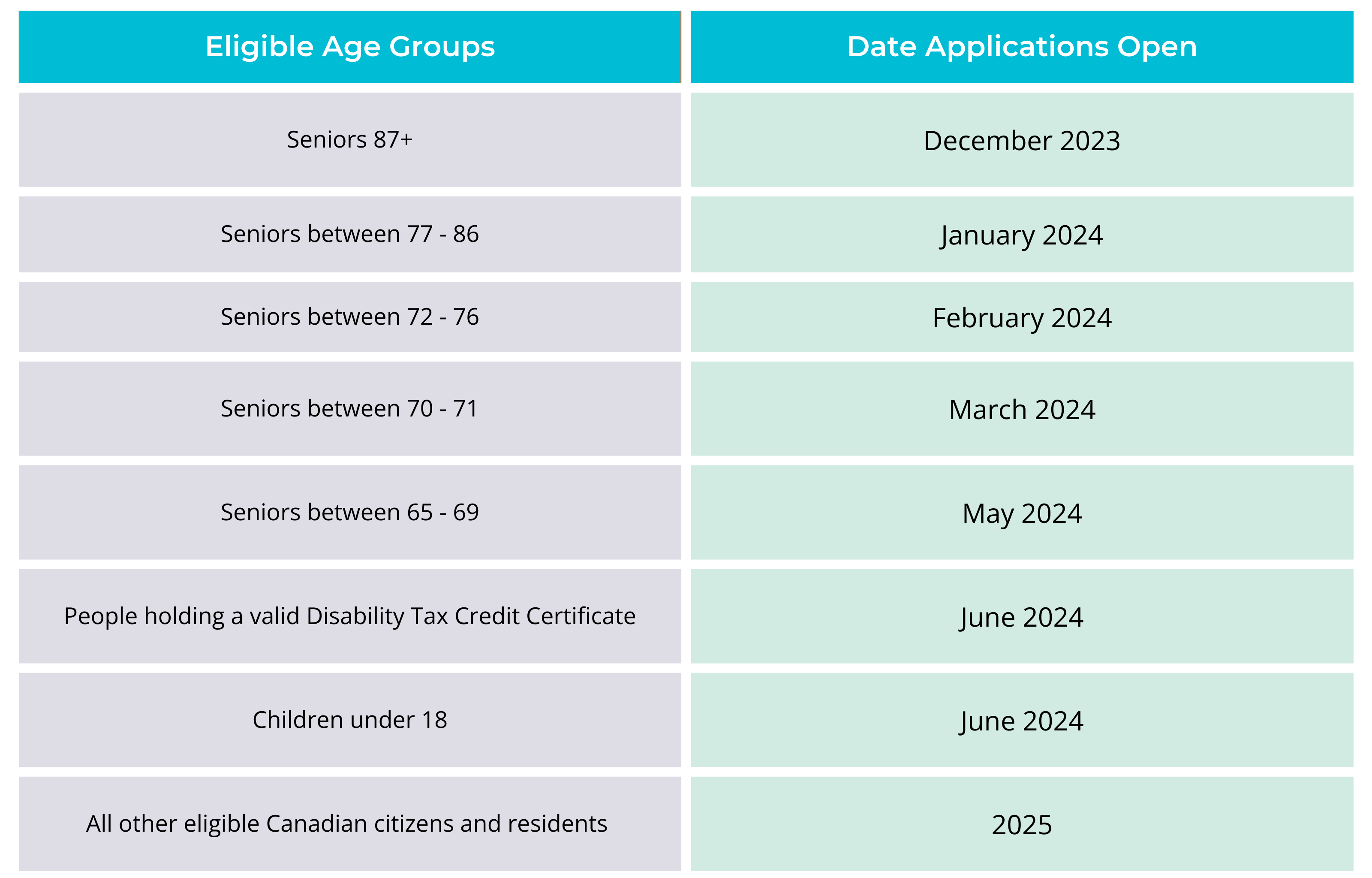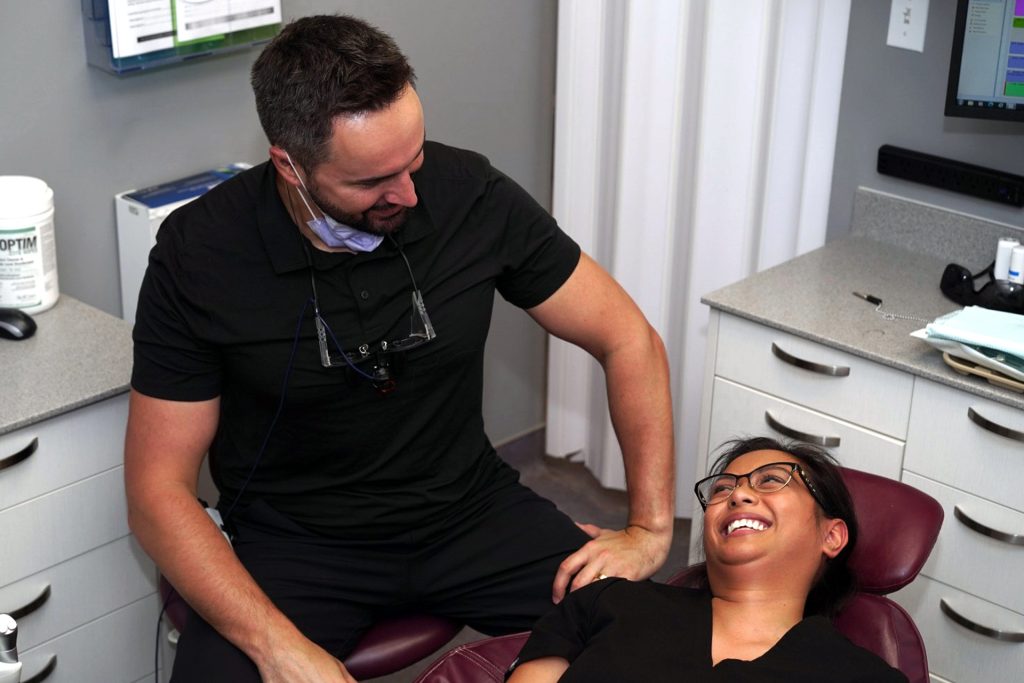The Canadian Dental Care Plan (CDCP) is a government initiative aimed at making dental care more accessible and affordable for Canadians. It targets individuals who lack the financial resources to afford essential dental treatments, ensuring they can maintain good oral health. This plan underscores the government’s commitment to enhancing the overall health and well-being of Canadians by addressing a vital yet often neglected aspect of healthcare.
Starting in May 2024, the CDCP will offer publicly funded dental benefits to eligible individuals. To qualify, applicants must have an annual household income below $90,000 and lack private dental insurance. The CDCP aims to cover all or part of the costs for various dental treatments, ranging from preventive care to management of oral diseases, thus helping to avert more serious health issues linked to poor oral health. The plan includes services such as check-ups, cleanings, fillings, x-rays, and other necessary treatments. By reducing the financial burden of dental care, the CDCP seeks to ensure that more Canadians can access the dental services they need, leading to improved overall health outcomes.


The CDCP application process will be phased in from December 2023 to 2025. Beginning in May 2024, seniors aged 65 and older can apply online or by phone. This phased approach is designed to efficiently manage enrollment and prioritize those most in need of the benefits.
For detailed application instructions, including specific dates and requirements, prospective applicants should consult the FAQs and other resources provided by the government. These resources will offer step-by-step guidance to help eligible individuals fully utilize the benefits offered by the CDCP.
Anyone wishing to participate in this plan must meet the eligibility requirements outlined below.
Applications for the CDCP are phased, beginning with seniors. Children under age 18 and those with disabilities are eligible starting June 2024. All other Canadian residents can apply starting in 2025.

The CDCP has developed their own fee guide, which determines the fees the CDCP will pay for services covered under the plan. These fees can differ from provincial or territorial fee guides. Not all patients will receive complete financial assistance through the CDCP due to required co-payments, so it is important to ask about costs not covered by the plan. These co-payments are the portion of treatment costs you would be expected to cover out of pocket, and the percentage is determined by your family’s net annual income shown on the previous year’s tax return. Co-payment or fees not covered are paid directly to the dental office.
Please note the percentages covered are for the CDCP fee guide, which is sometimes lower than the provincial guides.

Additionally, when a dentist follows their established fee structure, it may be higher than the CDCP’s fees, in which case there is a gap in payments. The gap can be filled by balanced billing, where the patient is billed for the difference between the CDCP fees and the fee their dentist would charge a patient who does not qualify for coverage under the plan.
For example, if a dentist follows the provincial fee guide and charges $100 for a recall dental exam but the CDCP fee structure only covers $90 the patient is responsible for the $10 difference. In the same example, for a patient with a net family income of $85,000, the plan would cover $36 (40% of the CDCP established fee) and the patient would be responsible for $54 (the remaining 60% of the CDCP established fee) plus the additional $10. Please note these figures are for illustration only.
If you are a senior (age 65 or older), there is no need to do anything, as you will receive a letter with instructions on applying and an application code. You can then apply over the phone by following the instructions included in the letter.
If you are eligible but haven’t received a letter, check the mailing address used for your 2022 tax filing is current. If your address is out of date, you will need to contact the Canada Revenue Agency (CRA) to update it.
From May 2024, people can apply online. At the time of writing, no information is available on applying online.
Once you have applied, Health Canada will confirm your eligibility and share your information with Sun Life to enroll you in the plan. You will receive a welcome package from Sun Life within three months of your application, which will include:
Once enrolled, you must meet the eligibility requirements each subsequent year with an annual reassessment. Details about the reassessment process have yet to be released.
If you are eligible but haven’t received a letter, check the mailing address used for your 2022 tax filing is current. If your address is out of date, you will need to contact the Canada Revenue Agency (CRA) to update it.
From May 2024, people can apply online. At the time of writing, no information is available on applying online.
Coverage under the CDCP is limited to basic services that protect and preserve natural teeth so people can benefit from teeth that function properly. Many people have missing teeth or teeth that are failing and need removing. When this is the case, the CDCP includes the provision of removable dentures, allowing people to eat and talk effectively.
The plan is not designed to improve the overall appearance of teeth or provide purely aesthetic benefits. It also excludes more complex treatments. Treatments not considered for coverage under the CDCP include those listed below.
For further information on services covered, please visit the Government of Canada website.


Parkway Family Dental has been serving Windsor-Essex County for over 15 years. Dr. Peter Siedlakowski and Dr. Samer Jassar affirm their commitment to the community by growing and being more accessible to all patients. At Parkway Family Dental it is our goal to make patient specific treatment plans to suit your individual needs. We look forward to meeting you.
Parkway Family Dental 2023 | Site Managed by BCVC